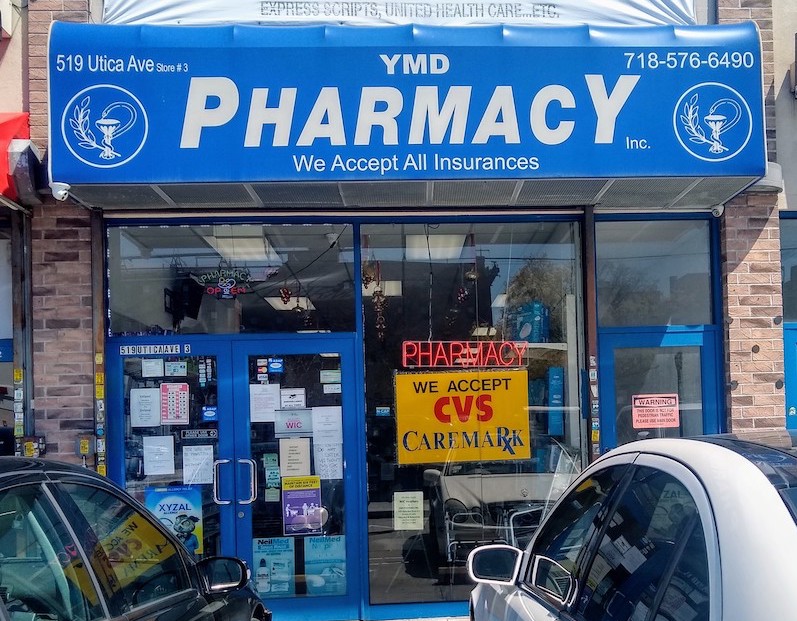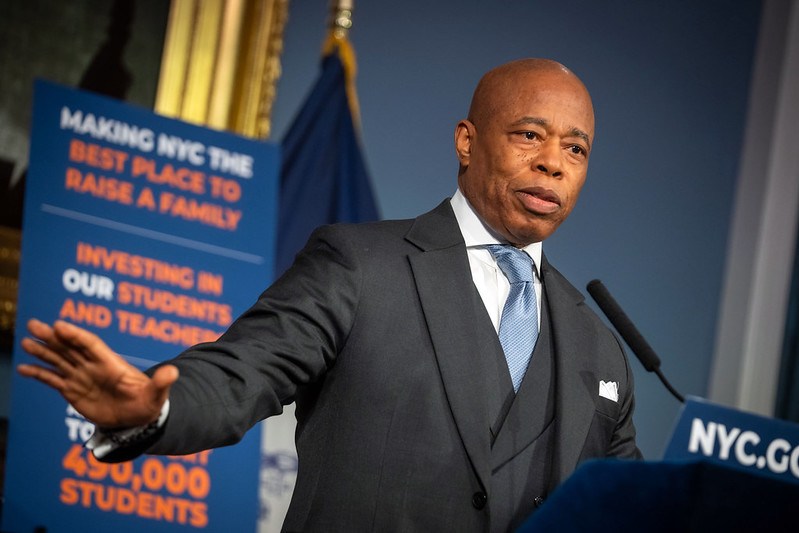Small mom-and-pop pharmacies are claiming foul after the state is holding up for two years federal reimbursement dollars.
The state had initially agreed last year to move the Medicaid payment model away from more corporate ‘middlemen,’ known as Pharmacy Benefit Managers (PBM). However, after the passing of the state’s budget, that decision was delayed by two years.
Senator Gustavo Rivera (D-Bronx) and Assemblymember Richard N. Gottfried (D-Manhattan) are seemingly split on how this issue affects devastated independent pharmacists and vulnerable communities, and what can be done to help a shaken part of the healthcare industry that’s been instrumental during the COVID-19 crisis.
“I understand the challenges faced by our independent and community pharmacies and am committed to working with them to address the challenges they are facing,” said Rivera.
The issue involves the federal 340B Program, which allows pharmaceutical companies participating in Medicaid or Medicare to sell discounted drugs to managed care providers. These providers are then able to save money and repurpose those funds toward other services, including statewide vaccinations efforts, COVID-19 outreach, and education.
“In regards to the Pharmacy Benefit Carve Out, I strongly believe that we can protect the 340B providers while implementing the carve-out and supporting independent pharmacies. We are going to have to work together to develop a structure that accomplishes that goal,” said Rivera.
The state budget calls the agreement the Medicaid Pharmacy Carve-out with a 340B program that was pushed back to April 1, 2023. The point was to transition Medicaid pharmacy benefits to a fee-for-service (FFS) program under which taxpayers would save money, patients would have prescription drug choice, and pharmacists would be paid higher in reimbursements for their distribution of drugs and services. It had already been agreed to in 2020’s state budget with a thorough transition plan in place.
Local pharmacists said they were depending on that potential money to stay afloat after economic losses across the board last year and insist that many will close without it.
Ilana Aminov, owner of Drug Mart pharmacy on the upper east side in Manhattan, has been a community pharmacist since the 1950s. She said in Queens where she first opened the pharmacy, she still has patients approach her with genuine questions. Local pharmacies are accessible and trusted, stressed Aminov, especially in the midst of the pandemic, COVID testing, and now the vaccine rollout.
“It becomes a family after a while because you know their brothers, sisters, siblings, their families, their children. They kind of grow with you,” said Aminov about why she loves her profession.
Aminov said that she suffered financially providing personal protective equipment (PPE) for staff, sick leave for workers, losing patients that traveled away from Manhattan, rent costs, and being reimbursed “under cost” for doling out prescriptions. “The governor had a team of people who are looking at this Medicaid issue,” said Aminov. “It was a win-win situation where we were supposed to get reimbursed fairly, taxpayers were not being ripped off, and the state was saving money on top of that.”
Rivera said this commitment to the 2020 transition was acknowledged in the budget, and requires the Department of Health (DOH) to issue a report to the legislature by December 31, 2021 detailing the procedures for the calculation and payment of prescription drug dispensing fees to pharmacies within the Medicaid program.
For now, the state is sticking with PBMs, or corporate third-party distributors of prescription drug benefits programs that serve large health plans, employers, unions and government entities, as defined by the Pharmacists Society of the State of New York (PSSNY).
They were created in the 1960s to process claims for insurance companies and have evolved to be corporate giants between a patient’s insurance company and the pharmacy. The largest PBMs are part of companies like CVS Caremark, Express Scripts and OptumRx and produce about 80% of the prescriptions in the U.S.
Gottfried does not share Rivera’s belief that things will work out without a change and blames Governor Andrew Cuomo for intervening.
“I opposed Gov. Cuomo putting the Medicaid drug benefit under managed care a decade ago,” said Gottfried. “I have worked since then to get the Medicaid prescription drug program away from managed care companies and ‘pharmacy benefit managers.’”
Gottfried said that the need right now is to make sure community health centers and others that serve many Medicaid patients are not deprived of the important funding they get from the 340B drug discount program.
LGBTQ advocates, among other healthcare professionals, warned that changes to the program would adversely affect communities in need, including individuals living with HIV/AIDS and the homeless, according to the Gay City News.
“I proposed ways to work this out, including temporary funding for 340B providers, and we fought to get that done in the budget. Unfortunately, the Cuomo administration used its power in the budget process to defeat what we tried to do. I will use the 2-year delay to work to get a sensible outcome,” said Gottfried.
Rivera contended that the delay was necessary to ensure the financial viability of community health centers, HIV providers, sexual health clinics, many rural hospitals and other safety net providers.
“Under federal law, providers need to purchase the drugs under Medicaid managed care to participate in the 340B program. If the carve-out went through, these essential clinics and safety net providers would have lost hundreds of millions of dollars in funding, which would have greatly impacted the wrap-around care they are able to provide to vulnerable New Yorkers,” said Rivera.
The Governor’s office did not respond for comment at post time.










